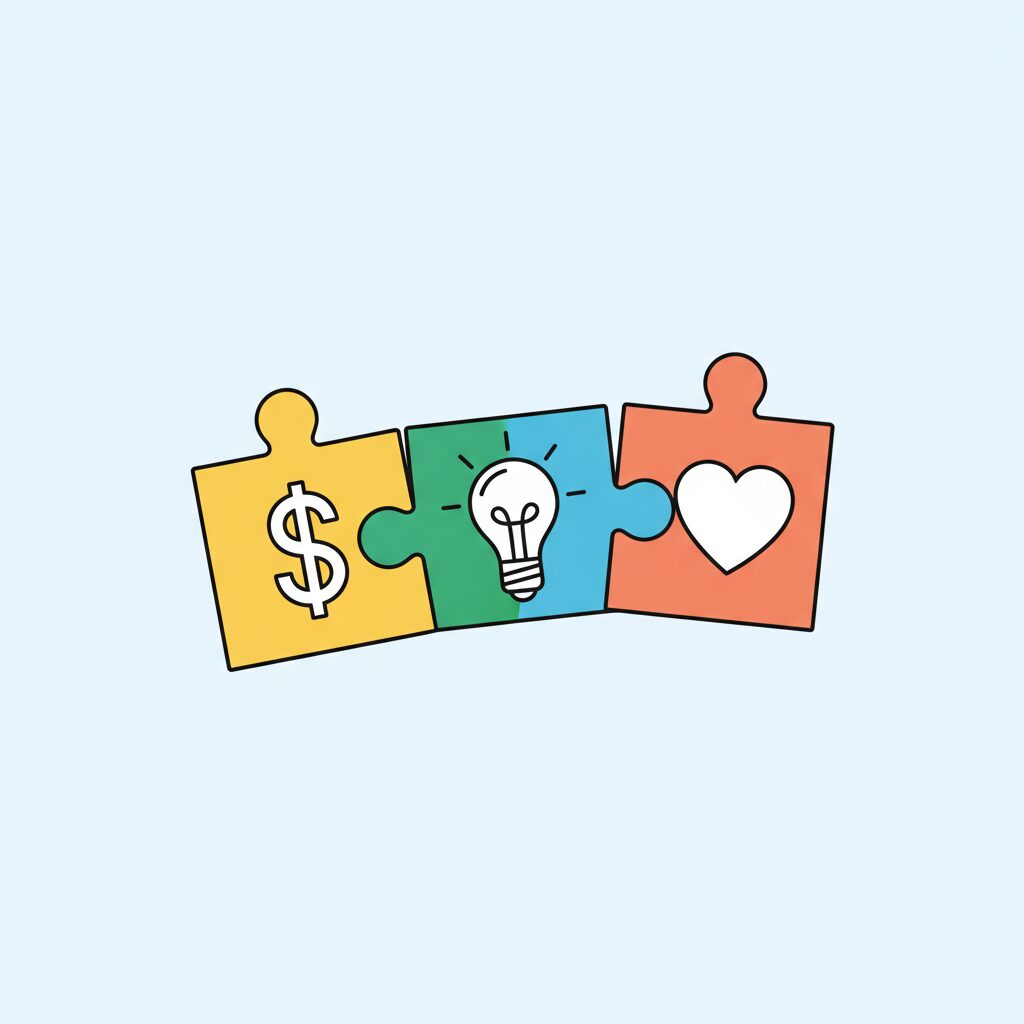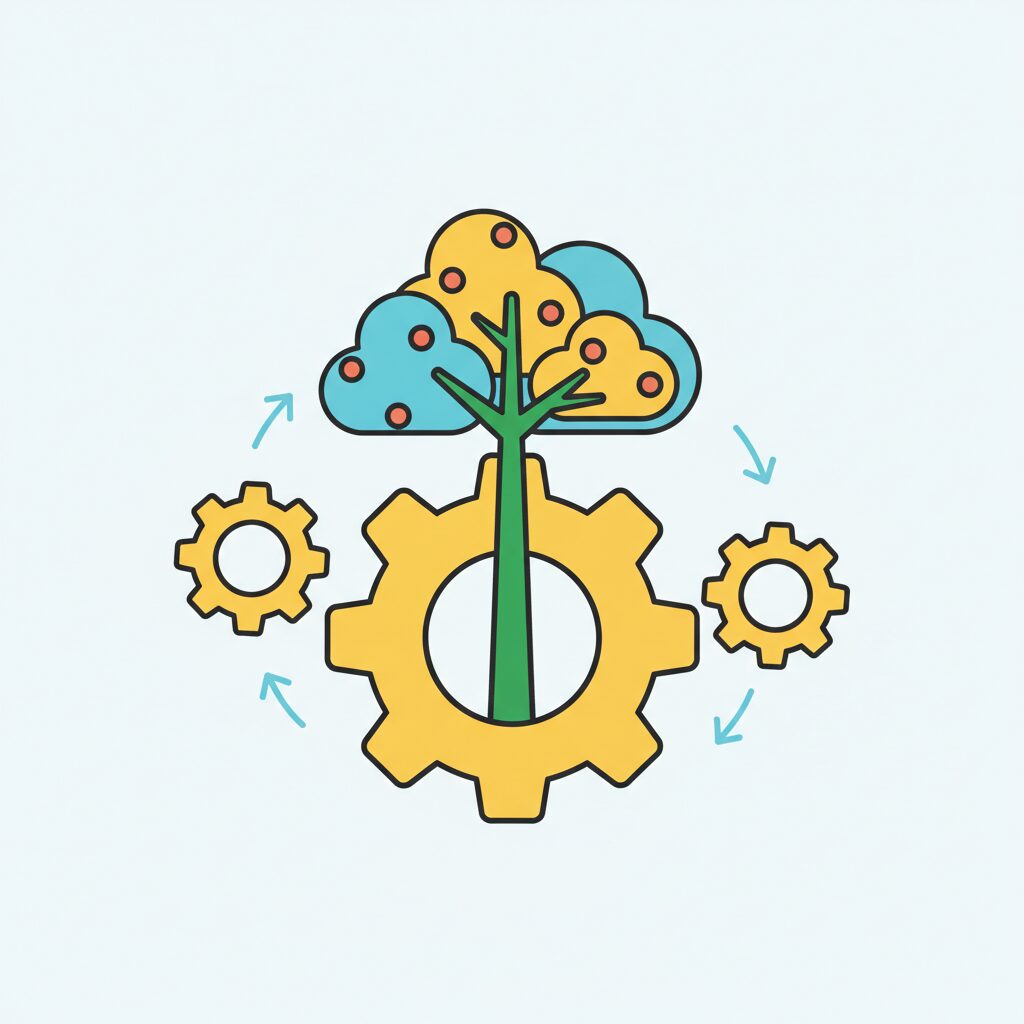
There’s something powerful about leaving a six-figure tech job in your prime to pursue work that feeds your soul instead of your bank account. That’s exactly what Leon Lim did at 30, walking away from cybersecurity stability to join his wife’s family funeral business. His story makes me pause and think—when we talk to our children about their future careers, are we emphasizing the right things? Leon called his shift a total ‘mindset reset’—how cool is that?! He took a 20% pay cut but found far greater fulfillment in making a meaningful difference. ‘Fulfillment isn’t just about income,’ he said. ‘It’s also about the difference I make…’
How Can We Help Children Find Purpose Beyond a Paycheck?

As parents navigating today’s tech-saturated world, we’re often caught in a balancing act. On one hand, we want our children to be technologically literate and prepared for well-paying careers. On the other, we hope they discover purpose beyond a simple paycheck.
The rise of cloud computing signals tech will be everywhere—and our kids will need both digital skills and human empathy. Leon’s transition reminds us that the most satisfying lives aren’t always the most predictable ones. In his previous role as a cybersecurity engineer, everything was structured and predictable. In contrast, the funeral industry—‘like an untapped market’ that’s slow to modernize—presented challenges that sparked his curiosity. This is exactly the kind of thinking we want to cultivate in our children: seeing possibilities where others see obstacles.
What if we framed career conversations not just about ‘what will you be when you grow up?’ but rather ‘what problems do you want to solve?’ That subtle shift could change everything!
What Unexpected Skills Help Children Create Purpose?

Here’s where it gets fascinating. A tech background in cybersecurity would seem worlds away from funeral services—yet Leon saw his career pivot as unlocking fresh potential. His ability to spot technology opportunities in the most traditional industries demonstrates a valuable perspective shift for our children.
The research shows that AI integration in funeral services can reduce planning time by up to 30% and save operation costs by 20%. This isn’t your grandfather’s funeral business anymore! Leon discovered that his technological expertise could actually enhance compassion and efficiency during life’s most vulnerable moments.
This brings me to what we’re teaching our kids about adaptability. The career landscape is changing faster than ever—many of today’s children will likely work in jobs that don’t even exist yet. Perhaps our greatest gift isn’t teaching specific job skills, but fostering the ability to find purpose and apply existing knowledge in completely unexpected fields.
Imagine your daughter using her problem-solving skills from coding class to organize a community event someday—or applying her storytelling abilities to create meaningful digital memorials. That’s the connection we’re aiming for!
How Do We Instill Purposeful Values in Our Children?

What I find most powerful about Leon’s story is how it models values we want our children to embrace. By choosing to follow his wife’s lead in guiding people through loss, he demonstrated courage, compassion, and commitment to something greater than himself.
In our household, we try to regularly discuss the impact of different careers—not just prestige or salary. As I watch my seven-year-old choose kindness with playground friends over winning, I see the same seeds of value-driven thinking that Leon embodied. Isn’t that what we truly want for our children? That they would look at a difficult situation and ask, ‘how can I make a difference?’ instead of ‘what’s in it for me?’
You know what amazes me? Children naturally gravitate toward purpose until we teach them otherwise. My daughter’s face lights up when she helps someone, not when she receives a prize. That’s the beauty of childhood—they’re born with an innate desire to make their mark on the world in meaningful ways.
We can nurture this by asking questions that connect their daily experiences with bigger-picture impact: ‘How did helping your friend make you feel?’ instead of ‘Were you the best at that game?’ Small conversations that reinforce the importance of purpose over perfection.
How Can Children Balance Technology and Purpose?

Let’s be honest—our children will likely need to balance technology and human connection throughout their lives. Leon’s story shows that these aren’t opposing forces but complementary ones. His background in cybersecurity allowed him to modernize funeral services with AI capabilities, creating a beautiful blend of efficiency and empathy.
This gloomy August sky makes me think how tech can cloud or clarify—just like Leon’s AI funeral tools actually deepened human connection! We worry about screen time, about our children missing out on authentic connections because of devices.
But what if we taught them that technology serves as a bridge—not a barrier—to deeper understanding? Could we show them that AI in education can enhance, rather than replace, human connection? Leon’s success came from recognizing that technology could actually strengthen compassion, not compete with it.
This makes me think differently about screen time boundaries in our home. Maybe they need to be framed not as limitations but as intentional choices about when tech enhances versus when it detracts from our human experiences. After all, isn’t that the balance we’re all seeking?
What Legacy of Purpose Can We Leave Our Children?

As parents, we often think deeply about the inheritance we’ll leave our children. Financial security? Check. Educational opportunities? Definitely. But what about the intangible legacy of purpose and values? That’s what Leon is passing on—not just through his business success but through his example.
The funeral industry is about celebrating lives and preserving memories. What incredible work to choose! Leon discovered that by applying his technical skills to something deeply meaningful, he created a legacy that money couldn’t buy.
This makes me wonder: Will we be remembered for the hours we worked or the moments we cherished? For the promotions we earned or the compassion we shared? What small moment today can show your child purposeful living?
Perhaps the greatest gift we can give our children is the courage to define success on their own terms—just as Leon did. To look beyond what society values financially and instead build careers around what brings them joy and purpose. In a world increasingly focused on metrics and measurement, that might be the most revolutionary lesson of all.
So I ask myself: Am I helping my daughter see the ‘untapped markets’ in her life? The places where she can make a difference by combining her unique talents with her deepest passions? That’s the conversation worth having today about tomorrow.
